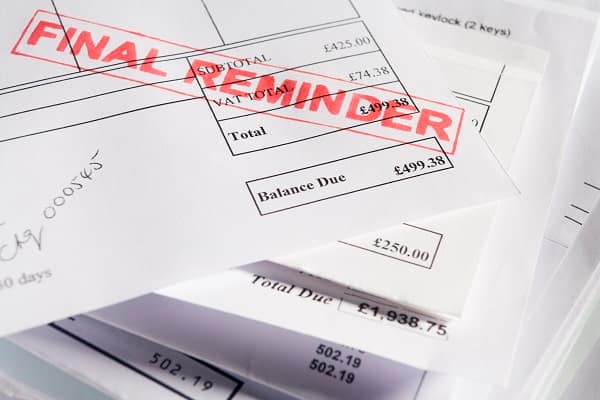keyseats

Debt Recovery for Businesses: Strategies and Best Practices
In today’s business world, managing cash flow is crucial for maintaining financial stability and ensuring sustainable growth. One of the most significant challenges that companies face is dealing with unpaid invoices and overdue debts. Effective debt recovery is vital for businesses to maintain healthy cash flow and minimize financial risks. This article explores various strategies, tools, and best practices for debt recovery to help businesses manage outstanding debts more efficiently.
Understanding Debt Recovery
Debt recovery refers to the process of pursuing payments of debts owed by individuals or businesses. It involves a series of actions taken by a creditor or a third-party collection agency to recover money from a debtor who has failed to pay their outstanding balances.
Why is Debt Recovery Important?
Improves Cash Flow: Recovering outstanding debts ensures that businesses have the necessary funds to cover operational expenses Debt Recovery for Businesses and invest in growth opportunities.
Reduces Financial Risk: Effective debt recovery helps minimize the risk of financial losses due to bad debts and improves the overall financial health of a company.
Maintains Client Relationships: A professional approach to debt recovery can help preserve client relationships by resolving payment issues amicably.
Boosts Profitability: By recovering owed money, businesses can increase their profitability and reduce the need for external financing.
Challenges in Debt Recovery
Debt recovery can be a complex and time-consuming process due to various challenges, including:
1. Communication Barriers
Reaching debtors can be challenging, especially if they are avoiding contact. Unresponsive clients and incorrect contact details can hinder the recovery process.
2. Legal and Regulatory Compliance
Navigating the legal landscape of debt collection requires compliance with regulations such as the Fair Debt Collection Practices Act (FDCPA) in the United States. Non-compliance can lead to legal issues and reputational damage.
3. Debtor Financial Instability
Debtors may be experiencing financial difficulties, making it harder for them to pay their debts. Understanding their situation and negotiating payment plans can be necessary but challenging.
4. Maintaining Customer Relationships
Aggressive debt collection practices can strain customer relationships. Balancing the need to recover debts with maintaining a positive business relationship is essential.
Strategies for Effective Debt Recovery
Implementing effective debt recovery strategies can significantly improve the likelihood of recovering outstanding debts. Here are some proven strategies that businesses can use:
1. Establish Clear Payment Terms
One of the most effective ways to prevent overdue debts is by establishing clear payment terms from the outset. Clearly outline payment expectations, due dates, and penalties for late payments in contracts and invoices.
2. Implement a Systematic Follow-Up Process
A systematic follow-up process helps ensure that payments are made on time and reduces the likelihood of debts becoming overdue. Consider implementing the following steps:
Automated Reminders: Use accounting software to send automated payment reminders before and after the due date.
Regular Follow-Up: Assign dedicated staff to follow up with clients regularly through phone calls and emails.
Payment Plans: Offer flexible payment plans for clients experiencing financial difficulties to make it easier for them to pay their debts.
3. Use Technology and Software Solutions
Utilize technology and software solutions to streamline the debt recovery process. Several tools can help manage and track outstanding debts, such as:
Accounting Software: Tools like QuickBooks and Xero offer features to manage invoices, track payments, and automate reminders.
Customer Relationship Management (CRM) Systems: CRMs can store client information, payment history, and communication logs, helping manage relationships and debt recovery efforts.
Debt Collection Platforms: Platforms like Atradius Collections and Debtor Daddy provide specialized debt recovery services and tools.
4. Engage a Debt Collection Agency
For challenging cases, consider engaging a professional debt collection agency. These agencies specialize in recovering debts and have the expertise to handle difficult cases. When choosing an agency, consider:
Reputation: Research the agency’s reputation and success rate in debt recovery.
Compliance: Ensure the agency complies with relevant laws and regulations.
Fees: Understand the agency’s fee structure, which may include a percentage of the recovered amount or a flat fee.
5. Offer Incentives for Early Payment
Incentivizing early payments can encourage clients to pay their invoices promptly. Consider offering discounts or other benefits for payments made before the due date.
6. Implement a Credit Control Policy
A robust credit control policy can help minimize the risk of bad debts. This policy should include:
Credit Checks: Conduct thorough credit checks on new clients before offering credit terms.
Credit Limits: Set appropriate credit limits for each client based on their creditworthiness.
Monitoring: Regularly monitor client accounts to identify potential payment issues early.
7. Maintain Professionalism and Empathy
Debt recovery should be conducted professionally and empathetically. Understand the debtor’s situation and work with them to find mutually beneficial solutions. Maintaining a respectful and understanding approach can preserve business relationships and improve the likelihood of successful recovery.
Legal Considerations in Debt Recovery
When pursuing debt recovery, it’s essential to understand the legal considerations involved. Here are some key aspects to consider:
1. Know Your Rights and Obligations
Familiarize yourself with the legal rights and obligations related to debt recovery in your jurisdiction. This knowledge will help ensure compliance with laws and avoid potential legal issues.
2. Issue a Formal Demand Letter
A formal demand letter serves as a written request for payment and outlines the amount owed, payment terms, and consequences of non-payment. It can serve as evidence in court if legal action becomes necessary.
3. Consider Legal Action
If all other efforts fail, consider pursuing legal action to recover the debt. This step should be a last resort due to potential legal costs and time requirements. Legal options may include:
Small Claims Court: Suitable for smaller debts, small claims court provides a more straightforward and cost-effective legal avenue.
Civil Litigation: For larger debts, civil litigation may be necessary to obtain a court judgment for debt recovery.
4. Understand Bankruptcy Proceedings
If a debtor declares bankruptcy, recovering the debt can become more complex. In such cases, it’s essential to understand the bankruptcy process and seek legal advice to determine the best course of action.
Best Practices for Debt Recovery
Implementing best practices can enhance the effectiveness of your debt recovery efforts:
1. Keep Detailed Records
Maintain comprehensive records of all communication, invoices, and payment agreements with clients. This documentation can be valuable in resolving disputes and supporting legal action if necessary.
2. Train Staff on Debt Recovery Techniques
Train your staff on effective debt recovery techniques, communication skills, and legal compliance. Well-trained employees can improve the success rate of recovery efforts.
3. Monitor Debtors Regularly
Regularly monitor debtor accounts to identify potential payment issues early. Addressing problems promptly can prevent debts from becoming unmanageable.
4. Review and Update Policies Regularly
Review and update your debt recovery policies regularly to ensure they remain effective and aligned with industry best practices.
5. Stay Informed About Industry Trends
Stay informed about industry trends and emerging technologies in debt recovery. Adapting to new tools and practices can enhance your recovery efforts.
Conclusion
Debt recovery is a critical aspect of business operations that requires strategic planning and execution. By implementing effective debt recovery strategies, leveraging technology, and adhering to legal considerations, businesses can minimize financial risks and maintain healthy cash flow. Remember that maintaining professionalism and empathy throughout the process is essential for preserving client relationships and achieving successful debt recovery outcomes.

